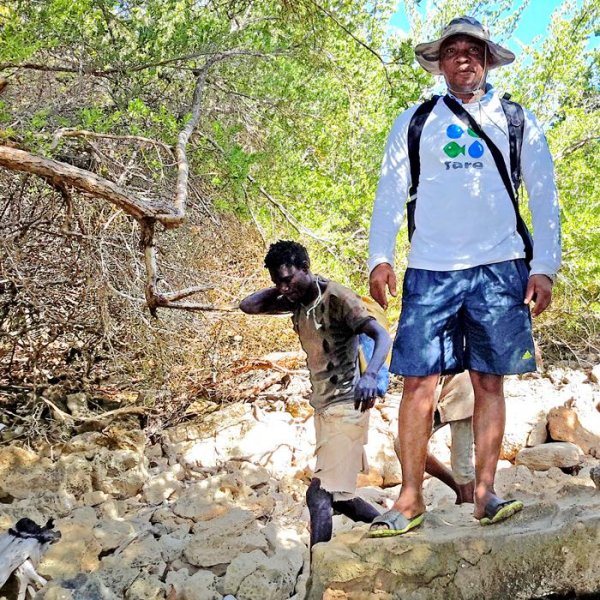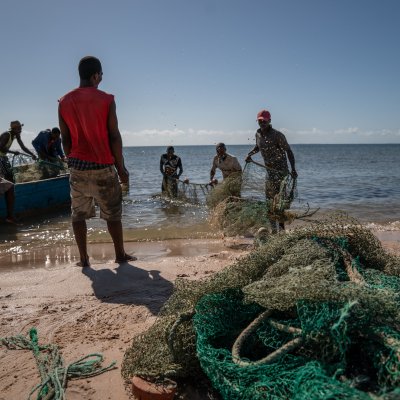Learning the Ocean’s Limits
Sustainable Solutions and Candid Conversations Focused on the Future Spur Positive Change for Today’s Mozambican Fisheries
Nordic Development Fund supports together with World Bank, Rare and the Government of Mozambique the Fisheries and Climate Change FISHCC Project in Mozambique. The following article from Rare Conservation describes how local staff from the Ministry of Fisheries work with fishing communities along the coast to establish a locally-based management of fisheries.
Growing up in Angoche, a coastal city in northern Mozambique, Rare Fellow Isidro Intave saw the nearby beach and mangrove banks as sources of never-ending play and possibility. Isidro and his friends spent the bulk of their childhood knee-deep in those ecosystems, where they swam, fished, gleaned mussels and scavenged the shore for things they could repurpose. He’d come home with fruits he’d picked from trees and turn them into tires for his wooden toy cars. “My friends and I, we had a lot of fun,” says Isidro. “We used to play in the sea, building boats using parts of a banana tree, turning plastic containers into floaters. We used palm trees to make a mini sailboat.”
It felt like easy and harmless fun, carried out on the assumption that Angoche’s coastal habitats could serve as Isidro’s lush playgrounds forever. “I did not understand at the time, the importance of natural resources,” he says.
As part of the coastal fishery, the brimming waters and miles of mangroves offered another, more tangible gift to the rest of the community: a stable source of livelihood and food. Back then, Angoche and other coastal communities could rely on (relatively) plentiful coastal fish stocks to provide them with most of their dietary protein — while feeding many inland Mozambicans as well — and keep them employed as small-scale fishers, seafood processors, and more. But that sense of security in fishing is gone.
While coastal people still depend heavily on small-scale fishing — a form of coastal fishing that mostly feeds locals, uses basic gear, and often lacks the resources for a motorised boat — the sector is now shrouded in uncertainty. According to a 2010 study of the country’s small-scale fisheries catch in the African Journal of Marine Science, catch peaked in the mid-1980s and has declined steadily since. Isidro spent 20 years in the thick of it, watching decline take over fisheries in big cities and small towns alike and combatting it as a fisheries extensionist and provincial delegate for the National Institute for the Development of Small-Scale Fisheries and Aquaculture (IDEPA).
Population growth and the accompanying rise in fishers have perpetuated the decline, mainly by causing increasingly competitive fishers to resort to overfishing and unsustainable fishing. In Mozambique, the latter takes forms like beach seining and small-gauge nets. At the same time, companies and individuals have taken part in gas and oil drilling, coastal development, and tourism, which can wipe out ecosystems like mangroves, coral reefs and seagrass beds, where fish populations breed and live. Climate change compounds human impact on the environment, worsening the effects of natural disasters like cyclones and floods on Mozambique’s exposed coastline.


